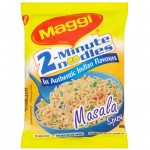The two-week long dramatization (and, on the off chance that you incorporate
some television news stations, acting) over Settle’s Maggi noodles, in some clumps of which a few
administration run sustenance testing labs say they’ve discovered abnormal amounts of lead and different added
substances, went to a peak on Friday, when the focal nourishment security controller requested the
organization to review all variations of the nibble from the Indian market.
Remainder for Indian Customers on Maggi Ban:
Settle cases its own tests, including some done by an autonomous lab,
demonstrate the noodles to be protected
and consistent with Indian benchmarks and has gone to court. In any case, until further notice the Maggi scene
has managed a monstrous hit to the organization, its brands and its value in the Indian market. Yet there
could be another aftermath of this: A profitable lesson for the Indian customer.
At the point when was the last time you read nearly the rundown of fixings on the bundle of sustenance —
treats, stick, sauce or anything — that you purchased before you ate it? Lead positively isn’t a recorded
fixing in Maggi noodles and whatever levels of that metal have discovered itself into the item is by method
for some other fixing — probably water — yet in the previous 20 years that Maggi has turn into a universal
nibble in India, what number of Maggi shoppers do you think have read the rundown of fixings on the bundles of
those moment noodles? Have you?
As Settle and the Indian powers lock horns in court and Maggi noodles stay off the racks, a positive effect of
this scene could be the rise of a more mindful Indian shopper.
Also, the time it now, time that happened. In more created markets, buyer
activism, especially concerning sustenance, is a dynamic development that frequently constrains worldwide
nourishment brands into rolling out improvements in what they put into the items the
As of late, US sustenance titan Kraft declared that from one year from now, it would quit utilizing fake
additives and hues as a part of its prevalent bundled macaroni and cheddar that give it a neon orange shade;
Chipotle, a US evolved way of life, has chosen to make nourishment utilizing fixings that are not hereditarily
altered; the sandwich chain Tram has said that in its North American market it would quit utilizing
counterfeit flavors, hues and additives in its meats and garnishes (an aside: do buyers realize that it now
does?); and Taco Chime and Pizza Hovel (both piece of another US sustenance major, Yum Brands) have
additionally reported arrangements to expel manufactured fixings and hues from their items.
Large portions of these sustenance goliaths have reacted to patterns in shopper inclinations in created
markets towards more regular fixings while others have respected purchaser activism — the Kraft choice, for
instance, takes after a change.org appeal marked by more than 360,000 individuals in America; and when in
Spring this year, Dunkin’ Doughnuts said it was uprooting titanium dioxide, a brightening specialists utilized
as a part of its powdered doughnuts, it did as such even with no confirmation that the nanomaterial is
destructive for people.
Interestingly, the Indian bundled sustenance market — its purchasers, controllers and even the administration
offices concerned — is in a substantially less advanced stage. Fixing names on bundled nourishment barely go
under examination (aside from maybe for chestnut dabs, which indicate non-veggie lover sustenance, and green
specks for vegan). The continuous Settle scene may be loaded with debates: started by a fanatical region
sustenance monitor, the Maggi noodles issue immediately transformed into a high-decibel media furor; the
starting response of the organization was mysteriously fluffy; and the choice to request the organization to
review the brand on the premise of unique lab results could appear to be rushed. Still, on the off chance that
it does turn into a wake-up call to the Indian shopper to watch what she eats, then it will have done some









